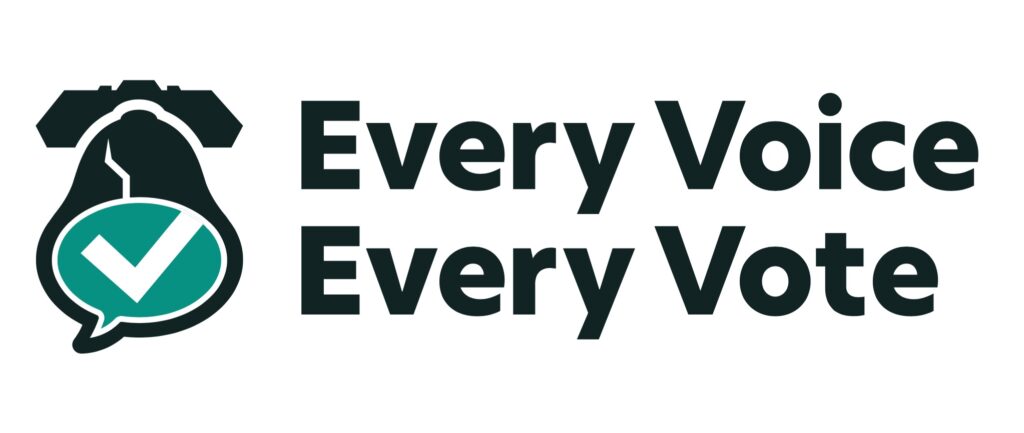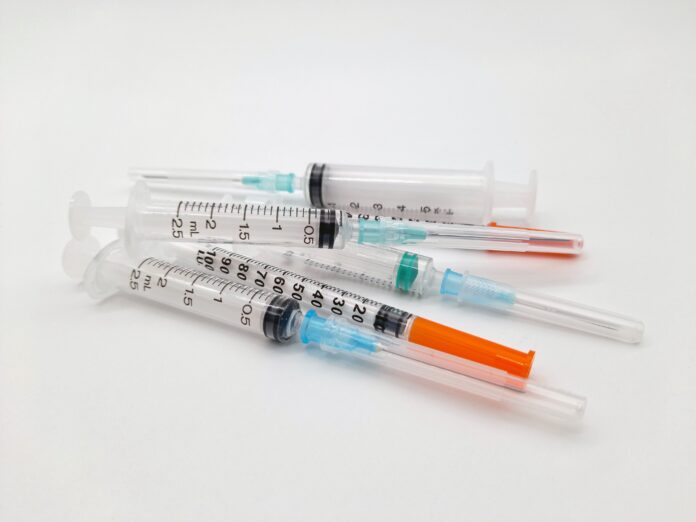Mayor Cherelle Parker’s budget for fiscal year 2025 does not include any funding for syringe exchange programs — a harm reduction and public health tactic that has been legalized in Philadelphia since the early ’90s.
Funding officially ended on July 1 — leaving it up to syringe service providers like Prevention Point to find and secure other means for continuing programs.
“We still get funding for just about everything,” said Larry Anderson, director of prevention services at Prevention Point, about the city’s continued support for the many other programs the organization offers. “They just went in a different direction on syringes.”
Anderson said the city was transparent about the decision to defund this aspect of harm-reduction programming — which he said gave Prevention Point about four to six months to plan before the loss in funding. He isn’t sure what the organization’s fundraising team is planning to do to secure money for the program, but he’s confident they’re working on it.
However, identifying and obtaining that money may not be as easy as it sounds. Syringe exchange services are still illegal in the state of Pennsylvania and at a federal level, so it’s illegal for state or federal governments to provide funding — leaving only foundations and charities or individual and corporate donors to support the cause.
Prevention Point began receiving financial support for syringe services from the city in 1992 as part of efforts to curb the spread of HIV/AIDS. Researchers believe that over 10,500 potential diagnoses of HIV associated with injection drug use were averted in the first ten years of Philadelphia’s funded programs, saving the city $243.4 million in costs associated with treating and caring for those who contract HIV.
Mayor Parker’s decision comes amidst the city’s goal of ending the HIV epidemic — a goal which has a target of reducing new HIV diagnoses 75% by 2025 and by 90% by 2030. The 2022 HIV Surveillance Report — released by Philadelphia’s Department of Health in December 2023 — notes that linkages to care are not improving, rates of homelessness for people living with HIV are increasing, and new diagnoses are slowly climbing. The biggest jumps in new diagnosis are among injection drug users.
That report also notes an intention to expand access to harm reduction services, specifically mentioning the importance of promoting syringe services as part of efforts to address those recently rising rates of HIV in the city.
Healthcare experts, including those working in her own administration, have cautioned that defunding syringe exchange programs could have negative consequences. They’re preparing for a spike in HIV and other bloodborne illnesses.
“While the administration is not funding Prevention Point in the FY2025 budget, we don’t dispute the science or data behind needle exchange, and we encourage philanthropic or other stakeholder efforts to step up with resources,” the mayor’s office wrote in a statement to PGN.
“The Parker administration is fully committed to developing a comprehensive system of long-term care, treatment and housing for individuals who are addicted to substances, suffering mental health challenges, or experiencing homelessness,” the statement continues. “The FY25 budget signed into law by Mayor Parker last month includes $100 million in funding to develop a comprehensive care facility in Northeast Philadelphia, and there will be many more steps to come. The status quo, in Kensington or any other neighborhood struggling with these problems, is unacceptable.”
While the administration noted that Kensington is not its sole focus, it is a place that receives a lot of attention when discussing the topic of syringe services. It’s the neighborhood that houses Prevention Point’s brick-and-mortar location — and not everyone is happy about the organization’s presence.
Some residents claim used syringes are left in the streets. Interim Lead Executive Officer Silvana Mazzella previously explained that the organization receives back 96% of the syringes it distributes — which could mean the litter isn’t coming from Prevention Point’s program participants. It might be a symptom of a much larger issue the city has to confront about addiction — that it exists whether organizations like Prevention Point are there or not.
The organization also participates in hours-long clean-ups on a nearly daily basis to ensure the neighborhood is safe for all. Still, the negative connotation associated with syringe services has created a wedge between some neighbors and organizations that provide these services — creating a narrow perception of what Prevention Point is and does.
In addition to treatments and care related to substance use, Mazella previously explained that during the 2024 fiscal year, Prevention Point held over 600 HIV primary care visits, 600 PrEP visits, and performed 1,450 HIV tests.
These services are now at risk.
Since 2015, the organization has been using its physical location as a medical services site — something the building wasn’t zoned for. Those medical services included same-day testing and treatment for HIV and Hepatitis C, HIV prevention medication, substance use treatment and wound care.
Prevention Point was recently advised by the city to obtain zoning permits to address this. But a Kensington civic group, Somerset Neighbors, voted against the organization’s request for this zoning exception on July 1.
What happens now?
“The community and the people who live there are of the utmost importance to us and we are committed to continuing to work with the community as a partner,” reads a statement sent to PGN on behalf of Prevention Point. “At the same time, the array of medical services provided at our main building is also a vital and necessary public good that are desperately needed in Kensington.”
“Our life-saving medical care is provided to individuals who often would not be willing to seek it in other medical settings,” the statement continues. “This saves our medical system millions of dollars.”
The organization hopes to continue a dialogue with the community, to hold a public meeting, and to work with local elected officials and community leaders before resuming the process with the zoning board. Prevention Point also plans to expand its existing services to provide resources to local families — including grocery deliveries.
“Prevention Point wants to work with the community to be the best neighbor possible, listening to and addressing concerns to reach common ground,” the statement notes.
If a special exception from the city’s zoning board is granted, the organization will eventually be forced to stop providing medical services at its current location. Prevention Point could continue to offer other services — including syringe services — but with funding for its syringe program in limbo, the organization’s ability to meet a variety of needs is uncertain.
For now, Prevention Point — which distributed almost 8 million syringes in 2023 — has needed to shrink its syringe service schedule, limiting the availability of syringe services at the physical location in Kensington. Exchange days are now strictly Tuesdays and Fridays, and emergency packs (which provide clean needles without requiring the exchange of used ones) will be available on Mondays. Anderson explained that this is in an effort to preserve resources.
“We are not stopping services,” he underlined about syringe exchange. “[The loss of funding] has adjusted services a little bit, but it hasn’t stopped our services. And we’re still able to provide the service that we told the community we would.”
Mobile sites will still remain active in neighborhoods across the city and remain on their typical schedules.
“This isn’t just a Kensington issue,” Anderson said. “It’s an issue for all of the city — so wherever we’re permitted to go, we definitely want to be there.”
For now, the brick-and-mortar location in Kensington will continue to provide medical services — including HIV testing and treatment — and more holistic support (such as meals, clean clothes, mental health support, testing kits, patient education, Narcan and overdose prevention training, bus passes, and many other services and resources).
“That’s one of the main reasons why I wanted to be a part of this,” said Anderson about helping people address more holistic needs.
He’s been scheduling more navigators at mobile sites to steer syringe exchange participants towards these additional resources.
“We’re making it work, so we’ll continue to do that and hope that our consistency changes some minds — or that people can see the vision that we see,” he said about his hope that the city’s current stance on defunding syringe services won’t be a permanent stance. “But we’ll do the best we can with what we got.”


